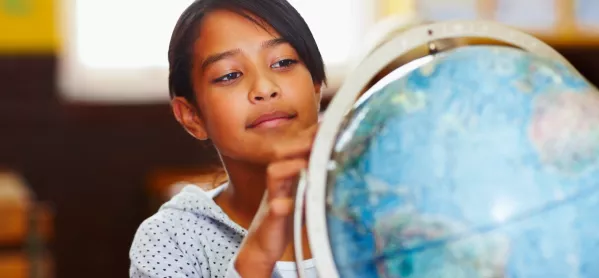- Home
- Six lessons from children in lockdown around the world
Six lessons from children in lockdown around the world

Every night, millions of families across the world watched the news of the day. Grave faces, faintly lit by glaring televisions, tablets and phones, silently listening to the mounting numbers of sickness, death and unemployment. The pandemic was proving chaotic not only for economies, health and education systems; it was also creating havoc in countless people’s hearts and minds.
It was mid-April and teachers were still getting a grasp of how to navigate distance learning. Many of us were already thinking about the lessons worth learning during the pandemic and beyond - those that are usually absent from the syllabus.
We needed to cope with the stress, to better manage our time and resources, to be resilient. And, mostly, we all desperately needed to find and share hope.
Children, who are particularly sensitive to the emotions they perceive in the adults around them, were not the exception. We co-authored the book Hope, Where Are You? to bring alive the power of storytelling for socio-emotional learning, to help parents and teachers to start deep conversations with children, but above all, to change the narrative of the pandemic from one of fear to one of hope.
Coronavirus: Finding hope in uncertain times
The six children that make the stories of the book - which is free, translated into more than 30 languages and supported by the LEGO Foundation - come from different places in the world. In some cases, they were inspired by real children facing challenges during or before the pandemic. Each one can bring us at least one valuable lesson on how to find hope during uncertain times:
1. Find your purpose
When we abruptly lose control of many aspects of our lives, it is easy to feel helpless. In a matter of days, we lost many freedoms we had taken for granted. When Bo had to live with his aunt while his parents, both doctors, worked at the hospital, he felt depressed and angry. He eventually found hope with the help of a friend, when he realised he could make his love of science useful for the people on the frontlines - including his parents.
LISTEN: The headteacher who went to work for LEGO
Reopening schools: ‘4 simple things to help pupils readjust to school’
Opinion: ‘Coronavirus has made educators think more globally’
A view from Hong Kong: Can modern lessons work in socially distant classrooms?
2. Keep your eyes on your dreams
Mulu knew she needed to stay in school to become a teacher one day. She was worried about not being able to go back even after lockdown. She showed us how the power of determination could help us overcome tremendous challenges, based on an inspiring true story.
3. Stay active
Our bodies are meant for moving, and this is linked to our mental health. Lockdown should not limit us in staying healthy. Kate wanted to make time go faster by running around her apartment, driving everyone crazy - until she found a way to engage her whole family.
4. Stay connected
Physical distancing does not have to be social distancing. Nikau was feeling lonely after moving to the countryside just before the pandemic hit. He missed his friends, and the lockdown prevented him from making new ones. With his brother’s help, he found an outlet for his frustrations by being creative and playful - and re-engaging with his friends back home.
5. Savour the little things
Sometimes we focus so much on the problems that we forget to savour the little gifts that life presents us with. Gaby’s parents were so immersed in their economic and domestic hardships that they did not realise how their constant bickering affected their daughter. Once they learned how she was feeling, they reconnected through once-beloved rituals - like baking cookies.
6. Being human means being vulnerable
Do not deny your feelings. Find a safe way to express them and even create something beautiful. Alessandro faced unimaginable loss and still he managed to find hope through his music - while inspiring many others.
Life is not perfect - and life after the pandemic might prove to be even more difficult than before. However, we could ease unnecessary hardships by expressing ourselves and elevating each other.
That is our hope for our children and for humanity.
Armand Doucet (@DoucetArmand on Twitter) and Elisa Guerra (@ElisaGuerraCruz) are teachers and the authors of Hope, Where Are You? Doucet was a finalist in the 2017 Global Teacher Prize and has won the Prime Minister of Canada Teaching Excellence Award. Guerra was named Best Educator in Latin America and the Caribbean by the Inter-American Development Bank in 2015 and is part of Unesco’s International Commission for the Futures of Education
Keep reading for just £1 per month
You've reached your limit of free articles this month. Subscribe for £1 per month for three months and get:
- Unlimited access to all Tes magazine content
- Exclusive subscriber-only stories
- Award-winning email newsletters